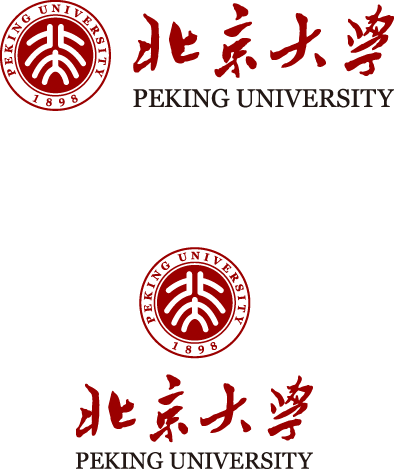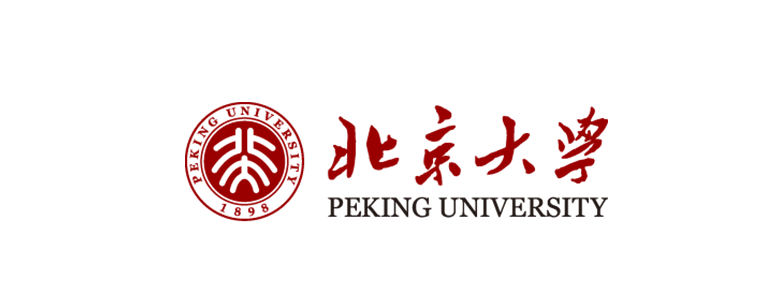Peking University

Founded in 1898, Peking University was first named as Beijing Normal University Hall. It was the first national comprehensive university in China and the highest educational administrative organ at that time. After the 1911 Revolution, it was renamed in 1912.
As the center of the New Culture Movement and the origin of the May 4th Movement, the birthplace of the earliest dissemination of Marxist and democratic scientific ideas in China, and the earliest activity base of the Communist Party of China, Peking University has made irreplaceable contributions to the revitalization and liberation of the nation, the construction and development of the country, and the civilization and progress of society. The contribution of generations has played an important pioneer role in the process of China's modernization. The traditional spirit of patriotism, progress, democracy and science and the style of study of diligence, rigorousness, realism and innovation are alive and well here and handed down from generation to generation.
In 1917, Cai Yuanpei, a famous educator, became president of Peking University. He carried out effective reforms on Peking University and promoted ideological emancipation and academic prosperity by following the principle of freedom of thought and taking inclusiveness. Chen Duxiu, Li Dazhao, Mao Zedong, Lu Xun, Hu Shi and a number of other outstanding talents have served or taught in Peking University.
After the Lugouqiao Incident in 1937, Peking University, Tsinghua University and Nankai University moved south to Changsha to form Changsha Provisional University. Shortly afterwards, the temporary University moved to Kunming, renamed the National Southwest United University. After the victory of the War of Resistance Against Japan, Peking University resumed its studies in Peking in October 1946.
After the founding of the People's Republic of China, colleges and departments were adjusted in 1952. Peking University became a comprehensive university focusing on basic teaching and research of Arts and sciences, and trained a large number of talents for the country. According to incomplete statistics, there are more than 400 academicians and faculty members in Peking University. A considerable number of influential people in the field of Humanities and Social Sciences in China are also from Peking University.
Since the reform and opening up, Peking University has entered a new period of unprecedented development and construction, and has become one of the two key universities in the national "211 Project".
On May 4, 1998, on the occasion of the centennial celebration of Peking University, President Jiang Zemin delivered a speech at the Congress celebrating the centennial of Peking University's founding. He issued the call that "in order to realize modernization, China should have some first-class universities with advanced world level". With the support of the state, Peking University launched the "Plan to Create a World-class University" in time. Since then, the history of Peking University has opened a new page.
On April 3, 2000, Peking University merged with the former Peking Medical University to form a new Peking University. The former Beijing Medical University was founded on October 26, 1912 as the predecessor of the National Beijing Medical College. In the 1930s and 1940s, the school was once called the Medical College of Peking University, and was incorporated into Peking University in July 1946. In 1952, during the adjustment of colleges and departments in national universities, Peking University Medical College separated from Peking University and became independent of Peking Medical College. In 1985, it was renamed Beijing Medical University. In 1996, it became the first medical university supported by the "211 Project" in China. The merger of the two universities has further broadened the discipline structure of Peking University, laid the foundation for promoting the integration of medicine, humanities, Social Sciences and science, and reforming medical education.
In recent years, with the support of "211 Project" and "985 Project", Peking University has entered a new stage of historical development. It has made remarkable achievements in discipline construction, personnel training, faculty building, teaching and scientific research, and laid a solid foundation for building Peking University into a world-class university. Today, Peking University has become the cradle of cultivating high-quality and creative talents, an important base for scientific research and knowledge innovation, and an important bridge and window for international exchanges.


-
1.Shangganling Xishui National Forest Park
Shangganling Xishui National Forest Park combines the strong local flavor and exotic style with the elegance of "paradise". It has both unique natural landscape and distinctive humanistic la
Time 2018-12-19 -
2.Anxi Tea Grand View Garden
Anxi Tea Grand View Garden in Quanzhou, Fujian Province is located in Fengguan Mountain on the north side of Fengcheng City. It covers an area of 11 mu
Time 2019-01-02 -
3.Qilian Mountain National Nature Reserve
Gansu Qilian Mountain National Nature Reserve is located at the northern foot of Qilian Mountain in the intersection zone of Qinghai-Tibet, Mongolia
Time 2019-02-07 -
4.Eight claw Fish Powder Pueraria Decoction
500 grams of Pueraria Thunb, 50 grams of octopus, 400 grams of pork legs, four candied dates, and 1/6 peel.
Time 2019-03-27 -
5.Plaque Custom Hakka Plaque Custom in South Jiangxi
Hakka plaque custom in southern Jiangxi has gradually developed with the migration of northern scholars to southern Jiangxi. Hakka traditional custom in rural areas has been formed
Time 2019-04-04 -
6.Dai Elephant Foot Inspiration
There is also a legendary story about the origin of the Dai elephant drum. Legend has it that Mengzhai area in ancient times was a beautiful lake rippling with blue waves. But there are pythons and to
Time 2019-04-24 -
7.Dulong Kakuwa Festival
Dulong Kakuwa Festival spreads in all Dulong villages in the Dulong River Valley in the west of Gongshan Dulong Nu Autonomous County, Nujiang Lisu Autonomous Prefecture
Time 2019-04-28 -
8.Oral skills
Oral skill is an excellent folk performing skill and a kind of acrobatics. Originated in ancient times, people used to hunt, imitate the sound of animals, to deceive prey for food. According
Time 2019-05-10 -
9.Wooden Fish Songs
Muyu song is short for Muyu, also known as Touyu song. It is one of the traditional rap and singing arts in Guangdong Province and belongs to the system of Tanci. It is popular in the Pearl River Delt
Time 2019-06-06 -
10.Shandong drum
In addition to the book drum, the musical instruments of Shandong drum were initially beaten with two pieces of plough and plough, and then two pieces of iron and copper were used, accompanied by thre
Time 2019-06-13 -
11.Gesala Ecotourism Area
Gesala eco-tourism area is located in Yankou Township, walai Township, Wenquan Township and Qinghe Township in the northwest of Yanbian County, Panzhihua City. It is located at the junction of Sichuan Province and Yunnan Province.
Time 2020-10-15 -
12.Education in Neijiang
By the end of 2019, there are 1170 schools at all levels in Neijiang City, with 570100 students and 39400 teaching staff. There are 689 kindergartens with 88900 students; 274 primary schools with 205400 students; 137 junior high schools with 126400 students;
Time 2020-12-16
